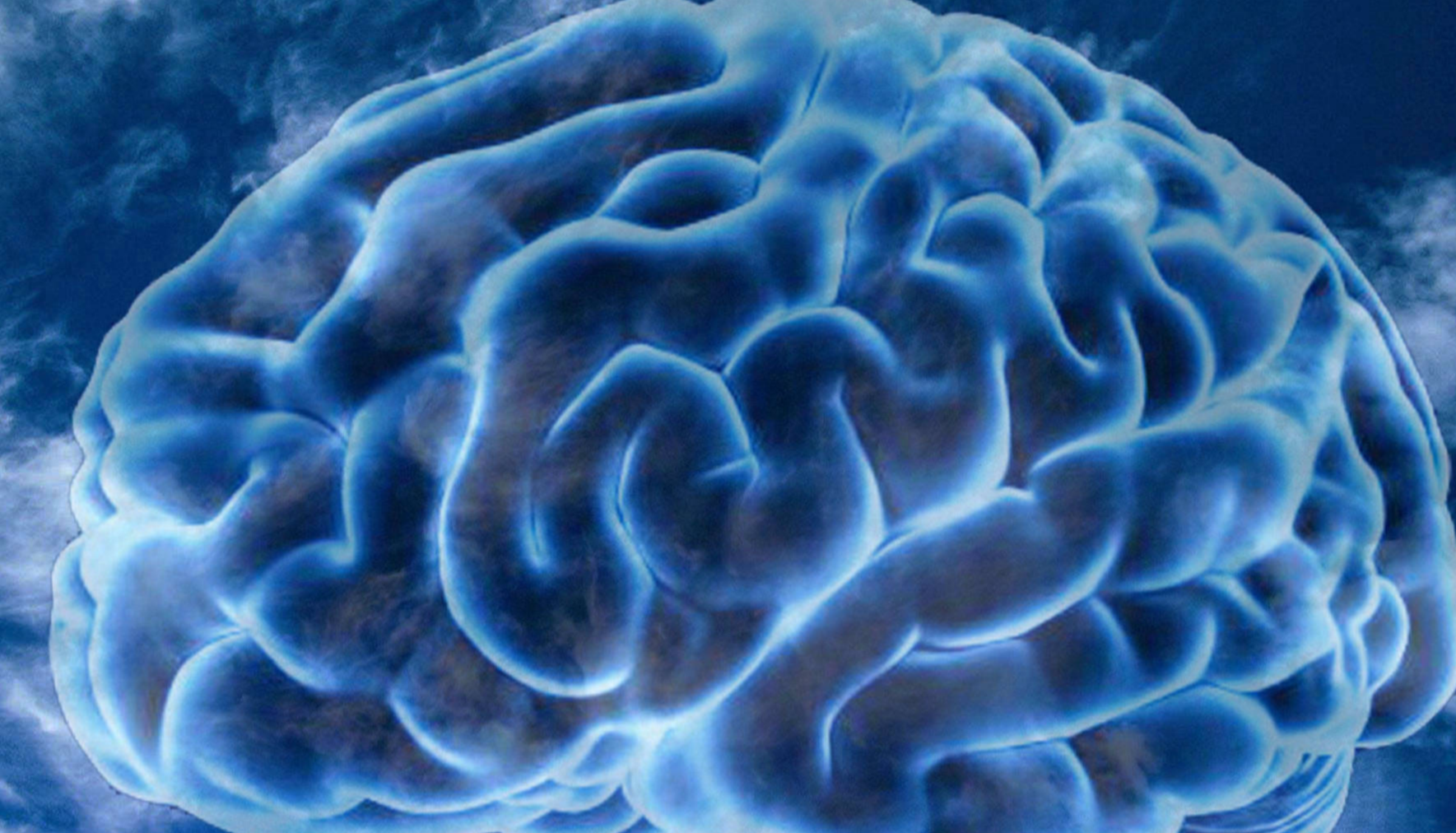or: Your brain is far more powerful than you think, but your mind is not your brain
Original Article 'Your Mind Does Not Care What Your Brain Thinks' by Billi Gordon Ph.D. published in psychologytoday.com
Read my 'take' on the subject of Brain versus Mind here
The brain and mind are both involved in consciousness and the terms are often used interchangeably but the brain and the mind are not the same. The brain is a tangible organ in the body that controls all vital human function. Conversely, the mind permeates every cell of the human body[1] and consults with non-human cells such as the gut bacteria, which comprise nine tenths of the cells in our bodies.[2] More importantly, the mind ultimately has dominion over the brain.[3-5]
The Brain
If the brain were a company, its mission statement would be: “promoting the highest quality of individual life by regulating stress to maintain homeostasis (balance).” To achieve this, the brain reconciles stimuli from our five senses with our internal milieu, i.e. observes the outside world and responds to it internally.[6]
The thalamus is the clearinghouse for all such sensory information except smell. Once sensory information is sorted in the thalamus it is dispatched to the hippocampus and the amygdala. Smell, however, goes directly to the hippocampus and amygdala.[7]
The hippocampus is the seat of learning and memory and compares the sensory information from the outside world with its perception of how the world should be[8], like a quality controller checks products to ensure they meet industry standards. The hippocampus reports any discrepancies or problems (e.g. I see a lion at my door) to the amygdala, which sends and receives information from every part of the brain and body.[9-11] In the case of an unexpected lion at the door the information would travel to the necessary places to prepare for the eventuality of fight or flight - with the smart money being on the latter.
Hormones and Neurotransmitters
The endocrine system uses hormones and the nervous system uses neurotransmitters to communicate between the body and the brain. Hormones are released by endocrine glands into the blood stream and carry information to and from various parts of the body and communicate with the brain by acting on neurons via receptors,[12-14] somewhat like voice and text messages between the department heads and the corporate executives in a company. Neurotransmitters are chemicals that allow nerve cells to communicate with each other and are like inner departmental emails. In this case, the department being the nervous system.
Communication between the brain and the body, via hormones and neurotransmitters, report interoceptive awareness[15, 16] (how you feel what you feel); this determines why you do what you do. It is similar to how the integrity of the work environment affects worker morale, loyalty and pride, which in turn influences workmanship and productivity.
Stress
Any intrusion on the homeostasis or balance of the organism is stress. Note: not all stress is distress, but all distress is stress. The brain's job is to regulate all stress and return balance to the internal milieu. Protective mechanisms, such as increases in blood pressure and serum glucose levels that prepare us for the eventuality of fight-or-flight, deconstruct health when they are overused and devolve into hypertension, cardiac disease and diabetes.[17-19] This process is similar to riding the brakes on your car until the pads are worn down to where it is metal on metal. Suddenly, your brakes, which are designed to keep you safe, become a liability placing you in danger. Chronic over usage results in allostatic load and negatively affects the quality of life the same way bad equipment and unsafe conditions creates a hostile work environment.
Hormones are vital to the brain for protection and adaptation. Unfortunately, stress and stress hormones, e.g. cortisol, can alter important brain functions such as learning. Thus severe and sustained stress can be as detrimental to the brain as a well-organised employee theft ring or embezzler can be to a company’s profits.
The Mind
As Candace Pert said, your body is your subconscious mind, i.e. the binding status of neuropeptides with receptors on the surface of cells, subsequent intracellular processes, the dispatch of informational substances, within the context of nature and nurture.[6] To imagine the influence of the mind over the brain, picture executives gathering in a boardroom to direct corporate strategy and determine company policy. The board members represent various demographics and agendas (belief systems, social influences, thought processes, education, innate intelligence, microbiome influences on mood, and information about all aspects of the company etc.)[20]
Comprehensively, the board members individual variables, in tandem with the group’s dynamics determine the efficacy of the board. For example, gut bacteria releasing metabolites into the blood stream and influence hormone and neurotransmitters and ultimately mood and emotion.[21-26] Mood and emotion change everything from perspective to presentation. Metaphorically, every unforeseen intangible variable that the people in the boardroom bring to the table individually and collectively is the mind in cohort with the influence of the microbiome. The way those variables, interactions and distractions affect their work is how the mind affects the efficacy of the brain. If the signalling of informational substances is compromised in the body, the brain is affected. [27-31] So, in summation, your mind is the sum of the wisdom of your neuropeptides, and other informational substances, under the advisement of your gut-bacteria (which is like your personal google).
The busy brain, consolidates, simplifies and anticipates.[32, 33] This promotes efficiency, but at the risk of vulnerability. For example, your brain will interpret the muscles you use to smile as a sign of happiness, even if you are sad. Thus, you can trick the brain into thinking you are happy by placing a pencil in your mouth and biting down on it, because you use the same muscles. Likewise, cortisol levels that habituate slowly are misread as the continuing presence of threat, even though the threat does not exist. This is problematic for the brain, which has not evolved much; it is not problematic for the mind, which constantly changes. [1]
The even better news is that you can promote the evolvement your mind with meditation, yoga, and healthy eating [34-42]. In turn, this will have a positive affects on your brain and body function because the mind is corporate management and the brain and the body are organised labour. In a perfect world, management and labor share the same goals, communicate well and compliment each other. In a healthy individual, the mind, brain, and body, interact to enhance functionality in individuals. Remain fabulous and phenomenal.
https://www.psychologytoday.com/us/blog/obesely-speaking/201403/your-mind-does-not-care-what-your-brain-thinks (includes all references)
References
1. Mind and brain. Sci Am, 1992. 267(3): p. 48-159.
2. Schwartz, S., et al., A metagenomic study of diet-dependent interaction between gut microbiota and host in infants reveals differences in immune response. Genome Biol, 2012. 13(4): p. r32.
3. Paller, K.A. and S. Suzuki, The source of consciousness. Trends Cogn Sci, 2014. 18(8): p. 387-9.
4. Paquette, V., et al., "Change the mind and you change the brain": effects of cognitive-behavioral therapy on the neural correlates of spider phobia. Neuroimage, 2003. 18(2): p. 401-9.
5. Paulson, S., et al., The thinking ape: the enigma of human consciousness. Ann N Y Acad Sci, 2013. 1303: p. 4-23; discussion 24.
6. Pert, C., Molecules of Emotion. 1997, New York, New York: Scribner.
7. Jellinger, K.A., [Functional pathophysiology of consciousness]. Neuropsychiatr, 2009. 23(2): p. 115.
8. McEwen, B.S. and P.J. Gianaros, Central role of the brain in stress and adaptation: links to socioeconomic status, health, and disease. Ann N Y Acad Sci, 2010. 1186: p. 190-222.
9. Cromwell, H.C. and R.M. Atchley, Influence of emotional states on inhibitory gating: animals models to clinical neurophysiology. Behav Brain Res, 2015. 276: p. 67-75.
10. Shu, S.Y., et al., Interactions among memory-related centers in the brain. J Neurosci Res, 2003. 71(5): p. 609-16.
11. Wittmann, B.C., et al., Mesolimbic interaction of emotional valence and reward improves memory formation. Neuropsychologia, 2008. 46(4): p. 1000-8.
12. Koibuchi, N., Hormonal regulation of cerebellar development and plasticity. Cerebellum, 2008. 7(1): p. 1-3.
13. Kropiunigg, U., Basics in psychoneuroimmunology. Ann Med, 1993. 25(5): p. 473-9.
14. McEwen, B.S., Early life influences on life-long patterns of behavior and health. Ment Retard Dev Disabil Res Rev, 2003. 9(3): p. 149-54.
15. Khalsa, S.S., et al., Interoceptive awareness in experienced meditators. Psychophysiology, 2008. 45(4): p. 671-7.
16. Sedeno, L., et al., How do you feel when you can't feel your body? Interoception, functional connectivity and emotional processing in depersonalization-derealization disorder. PLoS One, 2014. 9(6): p. e98769.
17. Kyrou, I. and C. Tsigos, Stress hormones: physiological stress and regulation of metabolism. Curr Opin Pharmacol, 2009. 9(6): p. 787-93.
18. McEwen, B.S., Hormones as regulators of brain development: life-long effects related to health and disease. Acta Paediatr Suppl, 1997. 422: p. 41-4.
19. McEwen, B.S., Allostasis and allostatic load: implications for neuropsychopharmacology. Neuropsychopharmacology, 2000. 22(2): p. 108-24.
20. Alberi, L., et al., Notch signaling in the brain: in good and bad times. Ageing Res Rev, 2013. 12(3): p. 801-14.
21. Borre, Y.E., et al., The impact of microbiota on brain and behavior: mechanisms & therapeutic potential. Adv Exp Med Biol, 2014. 817: p. 373-403.
22. Bravo, J.A., et al., Communication between gastrointestinal bacteria and the nervous system. Curr Opin Pharmacol, 2012. 12(6): p. 667-72.
23. Cluny, N.L., R.A. Reimer, and K.A. Sharkey, Cannabinoid signalling regulates inflammation and energy balance: the importance of the brain-gut axis. Brain Behav Immun, 2012. 26(5): p. 691-8.
24. Farmer, A.D., H.A. Randall, and Q. Aziz, It's a gut feeling: how the gut microbiota affects the state of mind. J Physiol, 2014. 592(Pt 14): p. 2981-8.
25. Mayer, E.A., T. Savidge, and R.J. Shulman, Brain-gut microbiome interactions and functional bowel disorders. Gastroenterology, 2014. 146(6): p. 1500-12.
26. Moloney, R.D., et al., The microbiome: stress, health and disease. Mamm Genome, 2014. 25(1-2): p. 49-74.
27. Barth, C., A. Villringer, and J. Sacher, Sex hormones affect neurotransmitters and shape the adult female brain during hormonal transition periods. Front Neurosci, 2015. 9: p. 37.
28. Bockaert, J., et al., GPCR interacting proteins (GIPs) in the nervous system: Roles in physiology and pathologies. Annu Rev Pharmacol Toxicol, 2010. 50: p. 89-109.
29. Holzer, P. and A. Farzi, Neuropeptides and the microbiota-gut-brain axis. Adv Exp Med Biol, 2014. 817: p. 195-219.
30. McEwen, B.S., The neurobiology of stress: from serendipity to clinical relevance. Brain Res, 2000. 886(1-2): p. 172-189.
31. Vitetta, L., et al., Mind-body medicine: stress and its impact on overall health and longevity. Ann N Y Acad Sci, 2005. 1057: p. 492-505.
32. Abraham, A.D., K.A. Neve, and K.M. Lattal, Dopamine and extinction: a convergence of theory with fear and reward circuitry. Neurobiol Learn Mem, 2014. 108: p. 65-77.
33. Abrous, D.N., M. Koehl, and M. Le Moal, Adult neurogenesis: from precursors to network and physiology. Physiol Rev, 2005. 85(2): p. 523-69.
34. Baerentsen, K.B., et al., An investigation of brain processes supporting meditation. Cogn Process, 2010. 11(1): p. 57-84.
35. Bonilla, E., [Mind-body connection, parapsychological phenomena and spiritual healing. A review]. Invest Clin, 2010. 51(2): p. 209-38.
36. Bowden, D.E., D. McLennan, and J. Gruzelier, A randomised controlled trial of the effects of Brain Wave Vibration training on mood and well-being. J Complement Integr Med, 2014. 11(3): p. 223-32.
37. Brewer, J.A. and K.A. Garrison, The posterior cingulate cortex as a plausible mechanistic target of meditation: findings from neuroimaging. Ann N Y Acad Sci, 2014. 1307: p. 19-27.
38. Cahn, B.R., A. Delorme, and J. Polich, Event-related delta, theta, alpha and gamma correlates to auditory oddball processing during Vipassana meditation. Soc Cogn Affect Neurosci, 2013. 8(1): p. 100-11.
39. Cohen, D.L., et al., Cerebral blood flow effects of yoga training: preliminary evaluation of 4 cases. J Altern Complement Med, 2009. 15(1): p. 9-14.
40. Konturek, P.C., T. Brzozowski, and S.J. Konturek, Stress and the gut: pathophysiology, clinical consequences, diagnostic approach and treatment options. J Physiol Pharmacol, 2011. 62(6): p. 591-9.
41. Selhub, E.M., A.C. Logan, and A.C. Bested, Fermented foods, microbiota, and mental health: ancient practice meets nutritional psychiatry. J Physiol Anthropol, 2014. 33: p. 2.
42. Voreades, N., A. Kozil, and T.L. Weir, Diet and the development of the human intestinal microbiome. Front Microbiol, 2014. 5: p. 494.
__________________________________________________________________________________






